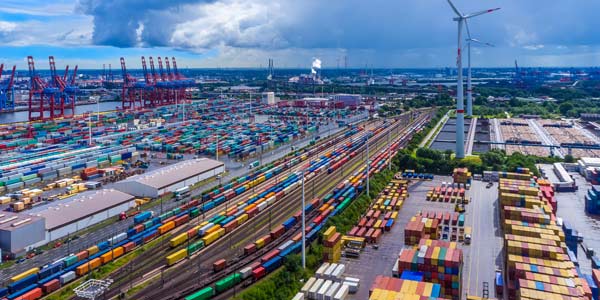End-to-end solar power solutions for the logistics sector
Pandemic-fueled supply chain issues, unprecedented diesel price hikes, and soaring ocean and air freight costs are not the only challenges facing logistics companies today.
The sector will also have to contend with ongoing loadshedding, double-digit escalations on electricity tariffs and an additional carbon tax burden:
Energy insecurity
Despite slowed economic activity in 2021 due to the pandemic, South Africa experienced its worst year of loadshedding yet according to PwC, with 2400-gigawatt hours of blackouts – a 38% increase on 2020. And the prospects for 2022 do not look good, with Eskom predicting up to 101 days of loadshedding in the winter months alone.
Rising electricity tariffs
Rising electricity tariffs are also taking a toll on business. 2021 saw a 15.6% hike and a further 9.6% increase is expected in 2022 – with indications that Eskom may escalate rates again by over 20% in the coming years.
Carbon tax implications
The Carbon Tax regulations will see large emitters paying R144 per ton of carbon dioxide equivalent emissions with an annual increase at consumer price inflation +2% from 1 January 2022 until 31 December 2025. From 2026, the government intends to escalate these rates as Carbon Tax enters its second phase of roll-out.
To lower its emission, the logistics sector will need to consider various tactics, including moving more road freight to rail, improving efficiencies in logistical route and network management and also improving operational and mechanical efficiencies.
A ray of light
In 2021, Government took action to relieve some pressure on the national grid, by amending Schedule 2 of the Electricity Generation Act, to grant permission to private entities to self-generate up to 100 megawatts of power without requiring a NERSA licence to do so. To give you an idea of output, 100 megawatts can power an average of 40 000 houses.
In South Africa, where we experience an average of 2 500 hours of sun every year, Solar Photovoltaic (PV) presents the logistics sector with a viable means of gaining energy security, lowering electricity costs, and offsetting carbon emissions to lower carbon tax burdens in years to come.
Powerpulse: An end-to-end solar power solution
There is no doubt that solar power offers substantial energy efficiency benefits for business where relatively low investment can yield high rewards, however, solar PV installations are not without their risks.
For those who are not experts in the renewable energy sector it can be challenging to accurately assess energy and infrastructure needs, vet suppliers, evaluate proposals, compare specifications on recommended components and identify the quality of the proposed technology and warranties and calculate costs versus expected return.
PowerPulse is a digital platform by Standard Bank that is designed to assist businesses cut through this fog and navigate the complex process of commercial solar PV installations with ease – by delivering an end-to-end legal, technical, and funding solution.
PowerPulse assists the logistics sector to:
- Complete an online feasibility assessment
- Set-up site visits and briefing sessions with accredited, pre-vetted providers that have the appropriate expertise and track record
- Receive three proposals with a comparison report to help you assess the quotes and compare like-for-like on:
- The quality, specifications, and warranties of proposed components
- Sizing of the system in relation to your annual consumption load profile and future growth projections
- Pricing calculations along with cashflow implications
- Payback periods with scenarios that both include and exclude South Africa’s 12 B tax incentive
- Ongoing maintenance costs
- Technical and legal assistance to ensure compliance with Eskom and local municipal regulations on solar PV connections
- Finally, Standard Bank offers a specialised financing solution for solar energy projects that starts at R250 000, with no upper limit constraint.
Usage of the PowerPulse platform is free
PowerPulse is open to all businesses operating in South Africa, with no charge for completing the feasibility analysis or connecting with pre-vetted EPC suppliers. All Solar PV installation and maintenance costs will be listed in the estimates you receive via the platform. Project financing fees apply.
Click here for information on how to register on the PowerPulse platform to begin your journey to energy independence and cost-saving today.
